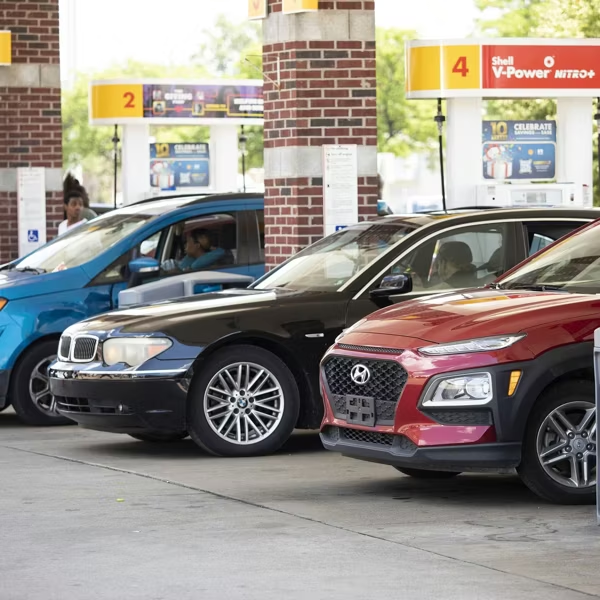The same industries fueling the climate crisis and disproportionately polluting Black and brown communities across the U.S are bankrolling police foundations, groups which can help militarize local police departments.
That's according to a new investigation from transparency group Public Accountability Initiative and its LittleSis project.
Authored by Gin Armstrong and Derek Seidman and published Monday, the report singles out actions from fossil fuel giants like Shell and Chevron as well as major utility companies and leading financial institutions.
"This report sheds a harsh and needed light on the ways police violence and systemic racism intersect with the climate crisis," Carroll Muffett, president of the Center for International Environmental Law, said in a statement.
"Rather than address growing public concerns with the dangers of pipelines and petrochemical plants, the fossil fuel industry has responded instead by seeking to criminalize protest, suppress dissent, and mislabel acts of free speech as acts of terrorism. The result is a rising tide of human rights abuses by militarized police forces against environmental and rights defenders," she said.
"That oil and gas companies are actually funding the forces inflicting those harms," added Muffett, "is sadly unsurprising and absolutely unacceptable."
As Little Sis noted last month, police foundations further fatten already bloated police department budgets--doing so "with little public input or oversight"--and have enabled some departments to acquire controversial surveillance equipment and outfit forces with weaponry including drones and LRAD equipment. Recent crackdowns by police on Black Lives Matter protests have shown just how willing departments are to deploy such equipment against demonstrators.
Corporations are also accused of "propping up racist policing" because "these companies sponsor events and galas that celebrate the police and remind the public that police power is backed up by corporate power," Armstrong and Seidman wrote.
The authors single out Chevron, a company that has been targeted by environmental justice advocates for years for, among other things, pollution related to its refinery in Richmond, California. From the reporting:
Chevron is a "Corporate Partner of the Police" sponsor of the New Orleans Police & Justice Foundation, as well as a board member of the Houston Police Foundation and sponsor of the Houston Police Department's mounted patrol. It is also donor to and, as of the end of 2018, a board member of the Salt Lake City Police Foundation.
The largest oil refining company in the U.S. and frequent emissions level violator Marathon Petroleum is also named in report.
Marathon's Security Coordinator sits on the board of the Detroit Public Safety Foundation, the city's police foundation. Marathon is also listed as a "Commanding Sponsor" of the foundation's fundraising event "Above & Beyond" and a "Bronze Sponsor" of their "Women in Blue" event.
Exelon, the country's largest utility, is described in the reporting as "a major political player and a prolific donor to police foundations where it and its subsidiaries operate, giving to foundations in Baltimore, Philadelphia, Chicago, and Washington D.C."
BGE, one of Exelon's subsidiaries, has a seat on the police foundation board and is a "gold level" sponsor.
Among financial institutions named--which also bankroll climate-wrecking projects--is JPMorgan Chase. That bank is a sponsor of of the New Orleans Police & Justice Foundation, which has used some of its funding to acquire surveillance equipment and. A JPMorgan Chase executive also holds the Secretary/Treasurer position on the police foundation's board, the reporting notes.
Paddy McCully, Energy and Climate Program director at Rainforest Action Network, said the findings were not surprising given that banks and fossil fuel companies are merely acting in their own interests.
"They need to ensure that when they want to impose dangerous and polluting projects on Black, Indigenous, and brown communities that the police will be there for them and willing and ready to repress community members who seek to protect their families, and their air, land, and water," said McCully,
As Zorka Milin, senior advisor, Global Witness, sees it, "The fossil fuel industry's ties to police foundations show a willingness to ignore the calls of racial justice advocates to dismantle the systemic racism of policing--despite some oil and gas companies' hypocritical claims otherwise."
"In reality," said Milin, "they are part of the system that upholds structural racism in the U.S."




